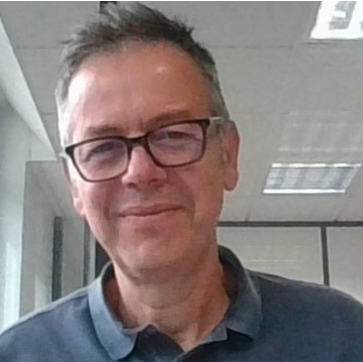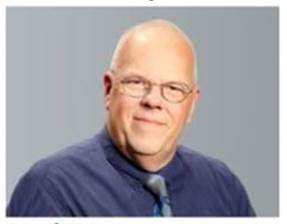This two-part online short course is designed to provide engineers with the essential knowledge and skills in SIMPLIS to become proficient and confident in using SIMPLIS to model switching power supplies.
This course will demonstrate the key differences between SIMPLIS and Spice in how the simulator performs Periodic Operating Point (Steady-State) analysis, AC analysis and in how devices are modeled using Piecewise Linear techniques.
This course is heavily punctuated with hands-on exercises that are central to the training experience. Users will be using the latest version of SIMetrix/SIMPLIS Elements to perform simulations.
Course Outline
Module 1:
- 1.0.1 SIMPLIS is a Time-Domain Simulator, all the Time, for Every Analysis, Period
- 1.0.2 PWL Simulation and Modeling
- 1.0.3 Multi-Level Modeling
- 1.0.4 Accuracy of PWL Models
- 1.0.5 POP and AC Analysis
- SIMPLIS Applications – Christophe Basso
Module 2:
- 2.0 Transient Analysis Settings
- 2.1.1 The Initial Conditions (.INIT) File
- 2.2 How POP Really Works
- 2.2.1 Overview of the Periodic Operating Point (POP) Analysis
- 2.2.2 The Core POP Process
- 2.2.3 POP Error Messages
- 2.2.4 Circuits Which Cause POP to Fail
- 2.3 Managing Simulation Data
- SIMPLIS Applications – Chris Swartz
Recordings and Materials
Module 1.0 - SIMPLIS Basics
Module 2.0 - Advanced SIMPLIS
Supplement (Module 2.3 Managing Simulation Data)
Tom Wilson's Intro Slide Deck
Christophe Basso's Slide Deck
Christophe Basso's publications and examples download
Instructors
- Tom Wilson, SIMPLIS Technologies
- Matthew Fortin, SIMPLIS Technologies
Round Table Participants
- Christophe Basso
- Chris Swartz
- Jens Ejury
- Ronald Wong
Prerequisites
Participants are assumed to have:
- completed the SIMPLIS Tutorial before attending this training course.
Participants must install:
- the latest version of the free SIMetrix/SIMPLIS Elements on your user machine.
Once SIMetrix/SIMPLIS Elements is installed, you must:
- perform the task of opening SIMetrix/SIMPLIS Elements and click on Help > Check for Updates...
This will make sure that all of the Training Example schematics are loaded onto your machine.
Troubleshooting
For information on how to install/update Elements or join the webinar, please see the SIMPLIS Essentials Support Page.
Biographies
Matthew Fortin
Matthew Fortin is an Applications Engineer at SIMPLIS Technologies where he works on end user-facing development, technical support, and user training. He has been a user of SIMetrix/SIMPLIS since 2012 when he was responsible for model development and public release for his former employer, Intersil (now Renesas). Since joining SIMPLIS in 2016, he has contributed to multiple aspects of SIMPLIS including, but not limited to, the Parameter-Editing Dialog tool, the Custom MOSFET tool, and the soon-to-be-released SIMPLIS Reverse Recovery Diode Model (v9.20).
Christophe Basso

Christophe Basso is a Business Development Manager at Future Electronics in France, covering EMEA for design assistance and technical support. Christophe has published nine books on power electronics and the tenth will be published in September of this year. He holds 25 patents on power conversion and has taught many seminars in IEEE-sponsored conferences like APEC in the US.
Christophe has over 25 years of power supply industry experience. Prior to joining Future Electronics in 2021, Christophe was a Technical Fellow at Onsemi and an application engineer for Motorola Semiconductor in Toulouse. He holds a diplôme universitaire de technologie from Montpellier University (France) and an MSEE from the Institut National Polytechnique of Toulouse (France). He is an IEEE Senior member.
Chris Swartz

Chris R. Swartz is a Senior Member of the IEEE and has over 37 years of experience in the area of Power Electronics including analog and digital circuit design, EMI, thermal analysis and circuit simulation including web-based power system simulation, thermal simulation and model creation. Chris currently heads up the Advanced Systems Design Engineering Group at Vicor where the latest Vicor advanced technology is made to enable key customer implementations in both research and production environments.
Jens Ejury

Jens Ejury is currently an application engineer at Infineon Technologies providing simulation support for customers and colleagues in the field of multiphase DC/DC power converters and TLVR designs. He also consults with coworkers on simulation and control topics. He has a lot of experience using SIMPLIS and SIMetrix to analyze converter efficiency and thermal performance as well as MOSFET SOA simulation and Digital control simulation.
Jens graduated from TU Ilmenau in Germany and has worked for various project companies in home power installation and low and medium voltage power distribution. He has made a number of paper presentations at various conferences including APEC. Jens had developed models for drivers and controllers (LLC, PMIC, POL, and multiphase buck) as well as demo and evaluation board designs for flyback, POL, and multiphase DC/DC converters.